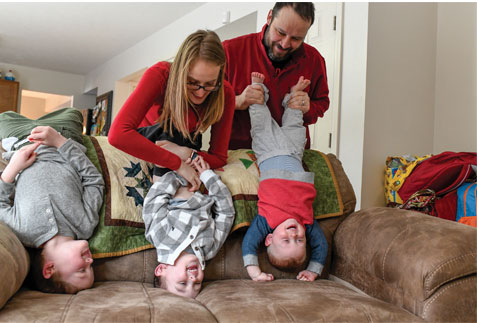How to Apply
Certification Appointments
Foster Children
How to Apply
What to Bring to the Certification Appointment
A parent, guardian or caregiver of an infant or child who is applying for WIC.
The infant(s) or child(ren) who is applying for WIC.
Immunization record(s) for the infant(s) or child(ren) up to age 2 years applying for WIC.
Proof of Identity for the parent, guardian or caregiver, and the infant(s) or child(ren) applying for WIC.
For example:
- Birth Certificate
- Driver’s license
- Hospital Record
- Immunization Record
- Photo ID
- Marriage license
Proof of Address
For example:
- Bill or business letter addressed to you
- Current driver’s license or photo ID
- Rent receipt
Proof of Income (for everyone in the household who works or has a source of income)
For example:
- All paycheck stub(s) for the past 30 days
- Award letter for alimony, child support or social security (including SSI)
- Unemployment or worker’s compensation
You may automatically be income eligible if you or certain family members participate in Medicaid, Temporary Assistance for Needy Families (TANF) or Supplemental Nutrition Assistance Program (SNAP).
- Proof of eligibility is needed:
- Medicaid card
- Award letter for TANF or SNAP
WIC for Foster Children
The Indiana WIC program extends WIC services to infants and children who have been placed through the Indiana Department of Child Services (DCS) with licensed and unlicensed relatives, as well as licensed non-relative foster parents. The Indiana WIC program is committed to eliminating barriers to services for these children and supports the nurturing efforts of their relative caregivers and foster parents.
Applying for WIC
Medicaid is typically used to income-qualify foster children for WIC; however, you do not need to wait for the child’s Medicaid to be fully active before making a WIC certification appointment. The WIC clinic staff are able to accommodate foster children in this situation.

WIC Electronic Benefits for Foster Children
With the new WIC card, benefits issued to a foster child’s household are not affected by benefits previously issued to the child’s parent or prior caregiver. The card stays with the foster parent and is not handed over to the new foster parent or caregiver when there is a change in the child’s custody. If you are caring for multiple foster children, the WIC clinic staff can help you decide how to best accommodate your household.

